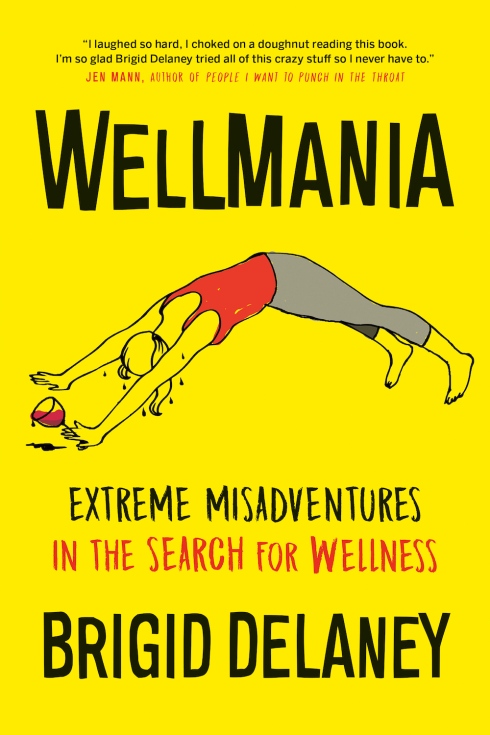Cold-pressed juices, “clean” eating, colonic vacations, mindfulness apps and Paleo: health-care trends and miracle diets seem to be more plentiful each year. But do any of these tactics actually work? What does “wellness” even mean? In Wellmania, longtime journalist Brigid Delaney tackles the good, the bad, and the just-a-little-ridiculous of the wellness industry, using herself as the guinea pig. Read our author Q&A below, and enter for a chance to win the book here! —Vita Daily
Hi Brigid! What motivated you to write Wellmania?
I’d spent 12 years writing various pieces of journalism about the wellness industry. By the time the industry was worth trillions of dollars, I realized that no one had really done a book on it. And I had a lot of material.
You’ve tried your hand at some pretty experimental wellness practices, including a Buddhist silent meditation retreat, a primal screaming-dance exercise and a brutal 101-day fast that promises to keep you alive until age 101. Why are we driven to such extremes when it comes to our well-being?
It’s in our DNA to be driven to such extremes. Human beings have long followed a fast by a feast-and a lot of religious festivals follow periods of deprivation. At the end of the Christmas season—once the weight has piled on—we also look for quick fixes to get back into shape.
In the book, you discuss something called the "healing crisis" paradox. Can you explain what you mean by that?
It is a term I came across a lot when I was fasting. New Age websites used the term to explain why when you fast, you feel pain in certain areas—like the kidneys, or a headache. They would say it is just toxins being released-and that there’s no cause for panic.
You note that practices like yoga and meditation-originally meant to be accessible to all—have developed into a multibillion-dollar industry. In the world of $10 juices and luxury healing retreats, has wellness become a pursuit of the privileged?
Yes. In most parts of the developing world, wellness is about getting enough to eat or surviving in cities where the air quality is severely compromised by pollution. The pursuit of wellness is mostly by the worried well and the anxious affluent.
You write that, "Once we would try to lose ourselves in love, war, religion or drugs but now we attempt to lose ourselves in the struggle for body, mind and spiritual perfection." Can you elaborate?
In times of relative peace and stability-and in countries where there is a lot of wealth-the energy tends to go inward. People become self-obsessed and narcissistic. The pursuit of wellness is a very individualistic thing.
What was the lowest moment during your wellness journey?
Fasting for more than 80 days. The first two weeks without food were really tough, and I struggled to cope-not just without food, but with no social life.
Of all the classes, diets and regimes you tried in the book, did anything actually stick? Did the writing of this book change you in any way?
Meditation is great—and ultimately it’s the one thing that I use each day. I still enjoy yoga and am considering doing a short fast over the summer.
What, ultimately, do you hope readers take away from Wellmania?
Everything in moderation, including moderation. And that the best wellness things—like sleep and swimming in the ocean—are free.


Be the first to comment